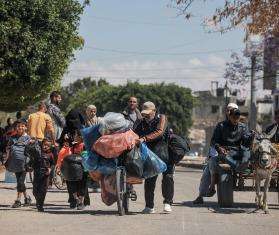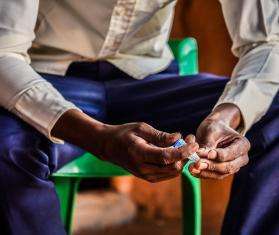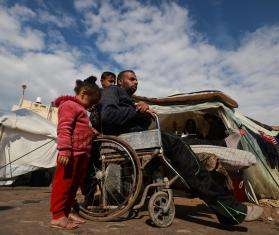On the night of March 14, 2019, Cyclone Idai struck the southeastern coast of Africa, causing catastrophic flooding and leaving hundreds of thousands of people cut off from health care and other essential services. Across Mozambique, Zimbabwe, and Malawi rivers broke their banks, homes collapsed, and high winds and waters resulted in the deaths of hundreds of people and the displacement of thousands more. Wind and flooding rendered roads and bridges impassible, knocked out power to vast swathes of all three countries, and destroyed or disabled crucial health and sanitation infrastructure.
Mozambique was the country hardest hit. Doctors Without Borders/Médecins Sans Frontières (MSF) immediately launched an emergency response to address the massive needs, working with the Ministry of Health to rehabilitate damaged facilities, running mobile clinics to reach people cut off from aid, shipping more than 100 tons of medical and logistical supplies, and responding to outbreaks of cholera.


Cyclone Idai was also the first time a major natural disaster hit a country with one of the highest HIV prevalence rates in the world: In Beira, Mozambique’s third-largest city and one of those worst-affected by the storm, one in six adults is HIV-positive. In the days and weeks following the cyclone MSF’s longrunning HIV projects in the region scrambled to return to full capacity. It took almost a month before our full HIV program in Beira—which includes night clinics for sex workers—was back up and running.


Less than six weeks after Cyclone Idai ripped through the region, Cyclone Kenneth hit the coast of Cabo Delgado province in northern Mozambique. It was the first time in recorded history that two cyclones hit Mozambique in a single season. UN officials warned that these back-to-back disasters should serve as a warning to prepare for more extreme weather events related to climate change. MSF teams responded immediately, fighting an outbreak of cholera and monitoring other health needs. As Mozambique is still on the long road to recovery, our teams continue to run projects throughout the country, fighting HIV, tuberculosis, and hepatitis C and providing sexual and reproductive health services to women and girls.






